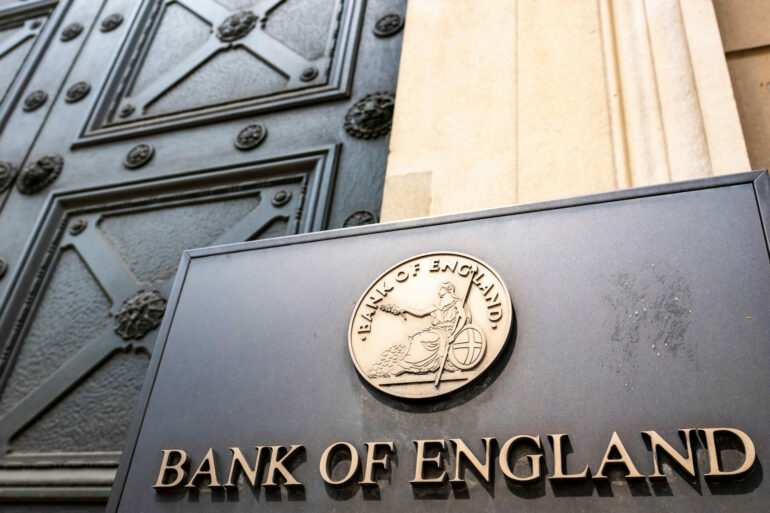The Bank of England (BoE) has increased the daily buying limit of its bond intervention from £5bn to £10bn as it attempts to calm fears of a pension fund sell-off.
The BoE also confirmed that it intends to cease buying bonds, or gilts, on Friday 14th October.
The move to purchase up to £65bn of gilts was first announced on 28th September amid concerns Liability Driven Investment (LDI) strategies operated by defined benefit (DB) pension funds could be forced to sell gilts to meet hedge fund collateral calls.
To date, the Bank says it has made around £5bn of gilt purchases.
Tom Selby, head of retirement policy at AJ Bell, said: “The Bank of England has further loosened its daily gilt buying purse strings as it prepares to wind up the dramatic intervention it first announced on 28 September.
“In addition, it has set out its plan beyond this Friday, when it will stop buying gilts, with a clear-eyed focus on maintaining order in the market and preventing a ‘death spiral’ of forced gilt sales from UK pension funds.
“However, there remains huge uncertainty over the adjustment period once the Bank steps back from its emergency intervention. It will no doubt be crossing its fingers that the certainty it has attempted to provide today will ensure calm is restored to the market.”
Why was the Bank forced to intervene?
“The central problem the Bank of England faced in the wake of Chancellor Kwasi Kwarteng’s shock mini-Budget was, in effect, a run on the gilt market. Investors apparently spooked by the Government’s planned spending splurge sold off bonds in their droves, driving down the price and in turn pushing up gilt yields.
“Normally higher gilt yields are good news for defined benefit (DB) pensions because they push down the value of liabilities, which, all else being equal, should improve their funding position.
“However, lots of pension funds use LDI strategies to hedge against interest rate risk. This essentially means that when gilt yields rise and the funding position of the scheme improves, the scheme will need to pay money to the investment bank running the LDI fund.
“The problem is that schemes are huge investors in gilts, meaning they would have been forced to sell these investments in order to pay what they owe to the hedging strategy.
“As a result, without the Bank’s dramatic intervention, these strategies could have added more fuel to what was already a potentially explosive economic situation.”
Reaction
Samuel Mather-Holgate of Swindon-based advisory firm, Mather & Murray Financial:
“It’s frankly staggering that the financial services industry hasn’t learnt its lesson from the 2008 Global Financial Crisis when it packaged up debt and used a combination of derivatives to sell risky assets as safe investments.
“This, in essence, is what the pension schemes have done. Using derivatives to leverage returns on government debt supercharges the risk involved beyond that of any regular asset class.
“The FCA and PRA look to have been asleep at the wheel once again.”
Wes Wilkes, CEO at wealth managers IronMarket:
“Lance Corporal Jones’ famous quote, “Don’t Panic Mr Mainwaring”, springs to mind. The Bank of England is essentially telling everyone to calm down whilst trying to mask its own panic.
“The messaging is needed, namely to shore up pension funds and convince them that Threadneedle Street has their back. But you have to ask why the Bank has been put in this position in the first place.”
Adam Walkom, Co-founder at London-based Permanent Wealth Partners:
“The law of unintented consequences should be required reading at the Bank of England, but unfortunately they’ve neglected to do their homework. Who would have thought raising interest rates so much so quickly could have dire repercussions?
“The answer is virtually everyone it seems, except those on Threadneedle Street. This should give serious pause for thought for the Bank of England during their next Monetary Policy discussion.”



